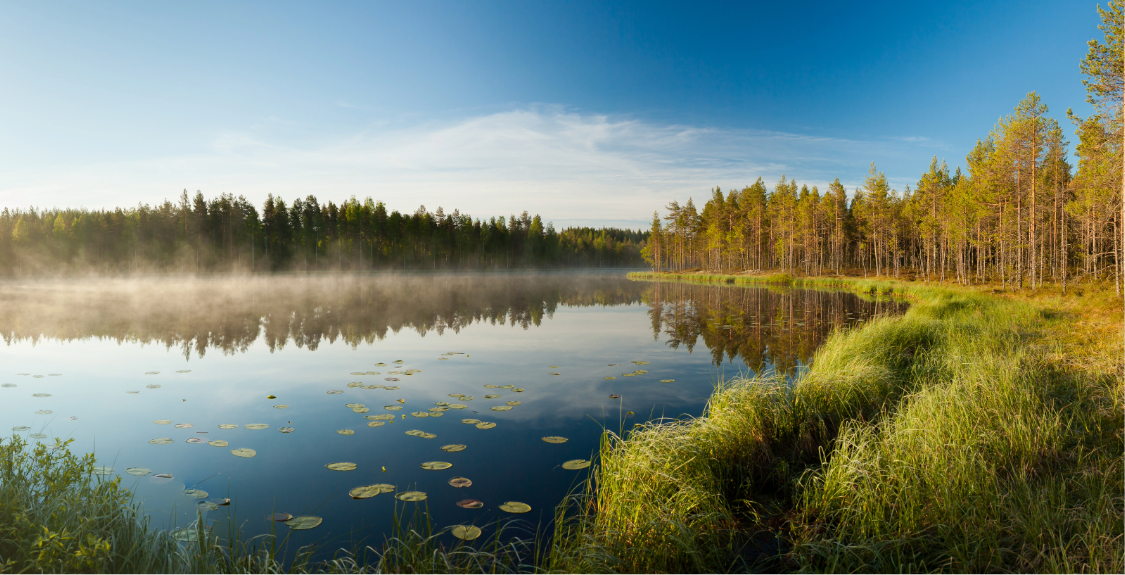AFM NEWS
What is the value of water features on my property?

Imagine settling into an Adirondack chair with a hot cup of coffee, a blanket, and a good book. When you pause for a sip, your view is a wooded oasis with a lake that sparkles as it reflects the sunlight. If this sounds like the ideal start to the weekend, let’s dive into the benefits and considerations of owning a property with water features.
Water frontage has often been considered desirable in various locations around the country. Buyers appreciate water features depending on their location; lakes, ponds, and rivers are beautiful recreational sites that provide wildlife habitat, and the coastline ocean frontage is a commercial commodity for the fishing and aquaculture industry. In Maine, oceanfront is highly desirable as recreational frontage, as properties with water frontage that are not in a floodplain are generally more valuable than raw land. While the buyer’s desires and subjectivity weigh into which properties they tour and ultimately purchase, these preferences do not have as much of an impact on the price. Other factors that impact the price of a property with water features include the feasibility/seasonality of road access, proximity to populated areas, buildable land, amount of frontage, and quality of the water. In many towns, lake front and ocean front properties have the highest cost per acre.
In addition to the vistas and recreational opportunities provided by water frontage, these water sources offer crucial habitats for countless species of wildlife and plant life. To encourage certain desired species, landowners can install predator-proof nesting boxes for wood ducks and fish feeders to supplement fish diets and provide opportunities to watch fish as they dine. Remote streams, ponds, and wetlands also provide numerous benefits, from flood attenuation to birding sites. Healthy forests located near waterways help with flood control, protect against erosion, and filter run-off to safeguard the integrity of local water sources. Although the benefits and recreational opportunities are alluring, landowners should weigh various considerations.
First, owning land with water features often requires waterway maintenance. Most states regulate development and maintenance along waterways, and local municipalities can impose additional restrictions. These standards are meant to minimize erosion and protect water quality. It’s essential to have a qualified land real estate agent and local forester on your side who can help you navigate zoning laws and regulations.
Likewise, depending on the geographical location of the water feature, potential landowners must consider the risks of flooding due to erosion, climate change, and other factors. Several states require real estate agents to provide FEMA flood maps and the history of the waterfrontage to help buyers make informed decisions. However, it’s important to note that some states are “buyer beware,” meaning that disclosing previous flooding events is not legally required. Areas with flooding impacts tend to have higher insurance rates and maintenance costs. In general, properties with water features are more expensive due to overcrowding, fierce competition, and lower inventory. Landowners may face higher costs of building on or developing on the property, as increased regulations, building materials, and accessibility impact the overall price.
Lastly, landowners should consider how they wish to use the frontage, specifically in regard to lakes and ponds, which may have regulations against motorboats and swimming. For instance, much of Maine’s water frontage is in remote areas where access may be limited by road, boat, or foot only. Lean on your local AFM Real Estate agent to help guide you in these instances.
Purchasing land with waterfrontage is a decision that can be highly rewarding. Buyers should weigh out the additional costs and regulations with supporting wildlife, breathtaking views, and exciting recreational opportunities. Your AFM Real Estate land agent can help you find the perfect property that aligns with your lifestyle and long-term goals.
